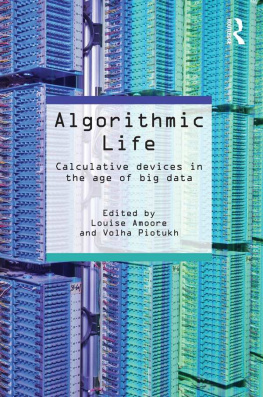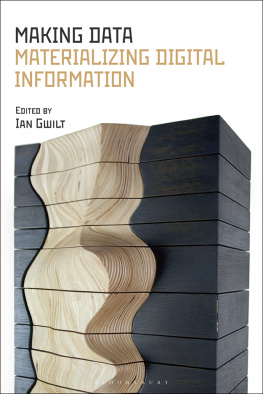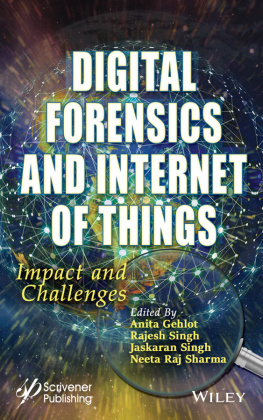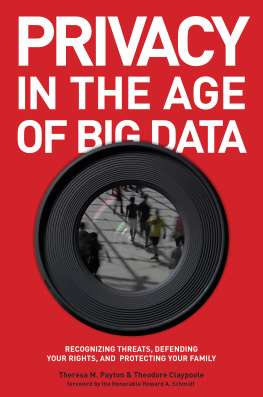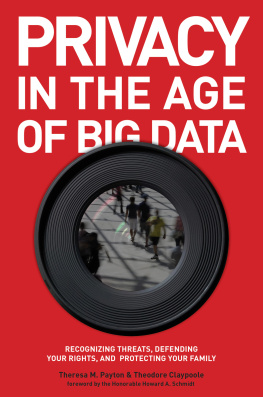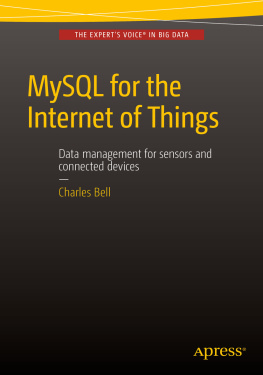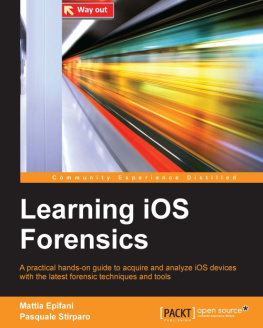Algorithmic Life
This book critically explores forms and techniques of calculation that emerge with digital computation, and their implications. The contributors demonstrate that digital calculative devices matter beyond their specific functions as they progressively shape, transform and govern all areas of our life. In particular, it addresses such questions as:
- How does the drive to make sense of, and productively use, large amounts of diverse data, inform the development of new calculative devices, logics and techniques?
- How do these devices, logics and techniques affect our capacity to decide and to act?
- How do mundane elements of our physical and virtual existence become data to be analysed and rearranged in complex ensembles of people and things?
- In what ways are conventional notions of public and private, individual and population, certainty and probability, rule and exception transformed and what are the consequences?
- How does the search for hidden connections and patterns change our understanding of social relations and associative life?
- Do contemporary modes of calculation produce new thresholds of calculability and computability, allowing for the improbable or the merely possible to be embraced and acted upon?
- As contemporary approaches to governing uncertain futures seek to anticipate future events, how are calculation and decision engaged anew?
Drawing together different strands of cutting-edge research that is both theoretically sophisticated and empirically rich, this book makes an important contribution to several areas of scholarship, including the emerging social science field of software studies, and will be a vital resource for students and scholars alike.
Louise Amoore is Professor of Political Geography at the University of Durham and ESRC Global Uncertainties Leadership Fellow (20122015).
Volha Piotukh is currently Postdoctoctoral Research Associate at the Department of Geography, University of Durham.
Algorithmic Life
Calculative devices in the age of big data
Edited by Louise Amoore and Volha Piotukh
First published 2016
by Routledge
2 Park Square, Milton Park, Abingdon, Oxon OX14 4RN
and by Routledge
711 Third Avenue, New York, NY 10017
Routledge is an imprint of the Taylor & Francis Group, an informa business
2016 selection and editorial material, Louise Amoore and Volha Piotukh; individual chapters, the contributors
The right of Louise Amoore and Volha Piotukh to be identified as authors of the editorial material, and of the individual authors as authors of their contributions, has been asserted by them in accordance with sections 77 and 78 of the Copyright, Designs and Patents Act 1988.
All rights reserved. No part of this book may be reprinted or reproduced or utilised in any form or by any electronic, mechanical, or other means, now known or hereafter invented, including photocopying and recording, or in any information storage or retrieval system, without permission in writing from the publishers.
Trademark notice: Product or corporate names may be trademarks or registered trademarks, and are used only for identification and explanation without intent to infringe.
British Library Cataloguing in Publication Data
A catalogue record for this book is available from the British Library
Library of Congress Cataloging in Publication Data
Names: Amoore, Louise, editor of compilation. | Piotukh, Volha, editor of
compilation.
Title: Algorithmic life : calculative devices in the age of big data / edited by
Louise Amoore and Volha Piotukh.
Description: Abingdon, Oxon ; New York, NY : Routledge is an imprint of the
Taylor & Francis Group, an Informa Business, [2016]
Identifiers: LCCN 2015028239 | ISBN 9781138852839 (hardback) |
ISBN 9781315723242 (ebook) | ISBN 9781138852846 (pbk.)
Subjects: LCSH: Electronic data processingSocial aspects. | Information
technologySocial aspects. | Big dataSocial aspects.
Classification: LCC QA76.9.C66 A48 2016 | DDC 005.7dc23LC
record available at http://lccn.loc.gov/2015028239
ISBN: 978-1-138-85283-9 (hbk)
ISBN: 978-1-138-85284-6 (pbk)
ISBN: 978-1-315-72324-2 (ebk)
Typeset in Times New Roman
by FiSH Books Ltd, Enfield
Contents
Louise Amoore and Volha Piotukh
Andreas Birkbak and Hjalmar Bang Carlsen
Martin van Otterlo
Sarah Widmer
Nathaniel OGrady
Joe Deville and Lonneke van der Velden
Richard Nisa
Oliver Belcher
Matthias Leese
Lee Mackinnon
Rebecca Coleman
Editors
Professor Louise Amoore is Professor of Political Geography at the University of Durham. She researches and teaches in the areas of global geopolitics and security, and is particularly interested in how contemporary forms of data, analytics and risk management are changing border management and security. Her latest book The Politics of Possibility: Risk and Security Beyond Probability was published in 2013 by Duke University Press. She is currently ESRC Global Uncertainties Leadership Fellow (20122015), and her project Securing against Future Events (SaFE): Pre-emption, Protocols and Publics (ES/K000276/1) examines how inferred futures become the basis for new forms of security risk calculus.
Dr Volha Piotukh holds a PhD in Politics and International Studies from the University of Leeds and is currently Postdoctoctoral Research Associate at the Department of Geography of the University of Durham, where she works with Prof. Louise Amoore on Securing against Future Events (SaFE): Pre-emption, Protocols and Publics research project. Prior to that, she taught at the University of Leeds, the University of Westminster and UCL. She is the author of Biopolitics, Governmentality and Humanitarianism: Caring for the Population in Afghanistan and Belarus (Routledge, 2015), which offers an interpretation of the post-Cold War changes in the nature of humanitarian action using Michel Foucaults theorising on biopolitics and governmentality, placed in a broader context of his thinking on power.
Contributors (in the order of chapters):
Andreas Birkbak is a PhD Research Fellow in the Copenhagen Techno-Anthropology Research Group at the Department of Learning and Philosophy, Aalborg University in Denmark. His research focuses on the devices of publics. Andreas is currently a visiting researcher at the Center for the Sociology of Innovation (CSI) at Mines ParisTech and in the mdialab at Sciences Po in Paris. He holds a BSc and an MSc in Sociology from University of Copenhagen and an MSc in Social Science of the Internet from University of Oxford.
Hjalmar Bang Carlsen is studying for a MSc in Digital Sociology at Goldsmiths, University of London and is also a MSc Sociology student at the University of Copenhagen in Denmark. His research revolves around Digital Methods, Controversy Mapping, Quali-Quantitative methodology and French Pragmatism. He holds a BSc in Sociology from University of Copenhagen.
Dr Martijn van Otterlo holds a PhD from the University of Twente (the Netherlands, 2008) and is currently a researcher on algorithmic manipulation and its implications at Vrije Universiteit Amsterdam. He is the author of a monograph on relational reinforcement learning (IOS Press, 2009) and a co-author (with Dr Wiering, the University of Groningen) on reinforcement learning (Springer, 2012). He has held positions in Freiburg (Germany), Leuven (Belgium), Twente and Nijmegen universities (the Netherlands). He has also served as committee member and reviewer for numerous international journals and conferences on machine learning and artificial intelligence. His current research interests are learning and reasoning in visual perception, robots, reinforcement learning, and the implications of adaptive algorithms on privacy and society.

